Discover The Sobremesa Podcast
The Sobremesa Podcast

The Sobremesa Podcast
Author: The Sobremesa Podcast
Subscribed: 68Played: 2,128Subscribe
Share
© The Sobremesa Podcast
Description
The Sobremesa Podcast is about modern-day Spanish society, politics and history, without the stereotypes. Please donate at to make the podcast sustainable: https://www.buymeacoffee.com/thesobremey
131 Episodes
Reverse
Originally published: 12/07/22This week's guest is sociologist Nicole Iturriaga who Eoghan talked to about her new book 'Exhuming Violent Histories: Forensics, Memory and Rewriting Spain's Past'. The book provides a detailed case study of Spain’s best-known historical memory organization, the Association for the Recovery of Historical Memory which since 2000 has been responsible for exhuming many of Spain's Franco-era mass graves. In the book, Nicole argues that part of the association's success has been due to its use of a depoliticised approach, i.e. using forensic science and family testimony, rather than overtly political arguments, to force the issue of Francoist state terror back onto the public agenda. It is available to buy on amazon (including in a very reasonable ebook version): https://www.amazon.es/gp/product/B094YXN968/ref=dbs_a_def_rwt_hsch_vapi_taft_p1_i0
Jim Jump, the editor of the poetry anthology "Poems from Spain: British and Irish International Brigaders on the Spanish Civil War", joins Alan to discuss the collection of poems that stretch the length Spanish Civil War and after. All poems were written by men and women participating in the International Brigades. They cover the lives of the poets themselves, recite poetry from the book and discuss why it was so prominent in the war. The collection can be brought from the publishers Lawrence and Wishart's website hereIf you like what we are producing, please consider making a donation at our Buy Me a Coffee page here - https://www.buymeacoffee.com/thesobremey
2025 was the year Spain stood out in Europe over its clear opposition to the Israeli genocide in Gaza, as well as over its critical stance towards the Trump-led military spending spree in NATO. With the fall of the Social Democrats in Germany, the country’s prime minister Pedro Sanchez also reinforced his position within the EU as the major figurehead of the continent’s centre-left. Yet, at home Sanchez has faced a series of crises and scandals within his own Socialist Workers Party while his complicated parliamentary majority hung by a thread while far-right Vox surged in the polls.To discuss the year’s events, Alan and Eoghan are joined by regular end of year guest IE university professor and Galician beach bar owner Joe Haslam. If you like what we produce, and want more, please think of contributing and making the podcast sustainable going forward:https://buymeacoffee.com/thesobremey
Spain is the European Union’s largest fruit and vegetable producer, with exports topping €18 billion in 2024. Yet those whose work sustains this lucrative sector face widespread underpayment and labour rights violations - with some facing extreme exploitation bordering on modern slavery.As Eoghan tells Alan, this model should not be seen as some antiqued part of the Spanish economy but rather in its employment of digital surveillance techniques and with the growing financialization of the agricultural sector, Spain is at the cutting edge of European farming.If you like what we produce, and want more, please think of contributing and making the podcast sustainable going forward:https://buymeacoffee.com/thesobremeyThe investigation discussed in this episode:1. Revealed: EU Farm Subsidy ‘Bankrolls’ Widespread Labour Abusehttps://www.desmog.com/2025/09/29/revealed-eu-farm-subsidy-bankrolls-widespread-labour-abuse/ 2. In Spain, Farmworkers Are Dying in the Heat https://jacobin.com/2025/10/spain-farmworkers-heatstroke-climate-crisis
As Spain marks the fiftieth anniversary of the death of dictator Francisco Franco, Eoghan sits down for a wide-range interview with Sebastiaan Faber, Professor of Hispanic Studies at Oberlin College and author of Exhuming Franco. They discuss the very contested institutional, political and ideological legacies of the dictatorship - as well as the continued fascination with Franco on the far-right in the United States. https://buymeacoffee.com/thesobremey
In this episode of The Sobremesa Podcast, Alan McGuire speaks with historian Dr. Jorge Marco, author of Paradise in Hell: Alcohol and Drugs in the Spanish Civil War (University of Wales Press).They explore how intoxication shaped the Spanish Civil War. Not just on the battlefield, but in propaganda, gender roles, and moral control. From the image of the “drunken enemy” to the ideal of the sober, disciplined soldier, Marco reveals how alcohol and drugs became tools for defining masculinity, nationhood, and the enemy.If you like what we produce, and want more, please think of contributing and making the podcast sustainable going forward:https://buymeacoffee.com/thesobremey
This week we discuss the use of football as a propaganda tool under the Francisco Franco dictatorship, concentrating in particular on the cases of Real Madrid and Barcelona. Eoghan speaks to historian Alejandro Quiroga, author of the book the book ‘Football and National Identities in Spain’. If you like what we are producing and want more, please consider making a donation to our Buy me a coffee page. All contributions help make the podcast financially sustainable. Donate here!
In the later years of Franco’s regime, Spain was beginning to change socially, culturally, and economically. But beneath the surface of so-called “soft dictatorship” the state continued to torture, imprison, and silence those who didn’t fit its moral order and catholic ideology.In this episode, we revisit a conversation with Sonia Cuesta Maniar, a doctoral researcher at St Antony’s College, University of Oxford, whose work examines how the Spanish state persecuted gay and trans people during the late Francoist period, turning them into public enemies that threatened the social order of the country.We talk about how the regime used psychiatry, imprisonment, and humiliation as tools of control, and how these acts of violence were justified.Re-released as part of our Francoism series, this episode reminds us that the dictatorship was not the “soft” authoritarianism it’s sometimes remembered as, but a system built on fear, repression, and the erasure of those who lived outside its narrow vision of Spain.The Sobremesa Podcast is completely independent; no ads, no sponsors, just time, research, and a lot of coffee. If you enjoy what we do, consider supporting us through Buy Me a Coffee so we can keep the podcast sustainable.Donate here!
In this episode of The Sobremesa Podcast, Alan McGuire and Eoghan Gilmartin are joined by Barcelona-based Italian journalist Tiare Gatti Mora. they discuss Spain’s relationship with Palestine and Israel.The conversation explores the political and moral dynamics behind Spain’s arms embargo, its efforts to help stop the genocide in Gaza, and the possible calculations shaping Pedro Sánchez’s stance on Palestine. This, of course, takes into account Spain's membership of NATO, its relationship with the Trump administration and European politics.Later they also compare Spain’s position with Italy’s response to the crisis, reflecting on how both countries’ left movements and governments have engaged with the question of solidarity.This episode offers a deep, timely analysis of how the European left have acted, and what its limitations are, when responding to one of the biggest war crimes of our time.If you want to help make the podcast more sustainable and help us pay for the programs we need to produce the podcast, please consider buying us a beer! The link is here
In this episode of The Sobremesa Podcast, we explore the complex and often contradictory history of Catalonia under Franco with historian Dr. Andrew Dowling.We unpack how the Francoist regime initially crushed Catalan language and culture, only to later co-opt selective elements for its own purposes — reshaping Catalan identity under authoritarian rule.We also examine the uncomfortable truths of the period: the early support of the Catalan upper class for the Franco regime, and how this changed in the face of growing repression and political decay.As the dictatorship entered its final, violent phase, a surprising alliance emerged — Catalan communists and the Catholic Church working together to organise resistance and push for democratic change.This episode is about memory, identity, collaboration, and struggle — and how Catalonia’s past continues to shape its present.🎙️ Support The Sobremesa PodcastWe love making The Sobremesa Podcast — bringing you deep dives into Spanish politics, culture, and history with voices you might not hear elsewhere.But here’s the truth:We have no external funding.We’re entirely volunteer-run — researching, writing questions, recording, editing, and promoting each episode ourselves.Your support helps us cover the basics:🎧 Recording platforms🎛️ Editing softwareIf you value independent, grassroots media that brings Spain to a wider audience — please consider donating to our Buy us a Coffee page. Even a few euros make a real difference and keep us going.We do this because we care — but we can’t do it alone.Gracias siempre for listening and supporting us.
This week's guest is historian Nicolás Sesma whose book on the francoist dictatorship, ‘Ni Una, Ni Grande, Ni Libre’, was named by El País as one of the top ten books published in Spanish in 2024. The book offers a brilliant re-telling of the four decades of the Francoist regime, placing particular emphasis on how a changing international context impacted its development. It also interrogates and dismantles many of the cliches and received truths around the dictatorship - such as its supposed transformation into a milder or softer dictatorship in its later decades.Nicolás is Professor of Spanish History and Civilization at the Université Grenoble Alpes.If you like what we are producing, please consider donating to out Buy Me a Coffee page: https://buymeacoffee.com/thesobremey
Ten days ago Spanish prime minister Pedro Sánchez’s Socialist Party was rocked by a major corruption scandal - when the party’s head of organization Santos Cerdan became implicated in a massive graft operation involving the Spanish construction giant Acciona.The case has called into question Sánchez’s political judgement and credibility - in what is the most serious crisis of his seven year stint as head of government. It also brings to mind the worst crony capitalist practices that have plagued Spanish institutions for decades. To discuss the political importance of this scandal, Alan and Eoghan are joined by Joe Haslam, professor at IE University. And please remember if you like what we are producing and want more, think about supporting us at our buy me a coffee page here: https://buymeacoffee.com/thesobremey
In this special live episode, recorded at the launch of The Last Days of Alicante, Alan McGuire is joined by Eoghan and a close audience of family and friends to discuss his debut poetry collection. The conversation explores the themes behind the book, from tracing the scars of the Spanish Civil War in modern-day Spain to the life and legacy of Miguel Hernández. With audience questions and reflections, this intimate event celebrates poetry, memory, and resistance.You can buy a copy of the book here It is also available on other websites and in various independent bookstores. The publisher is Culture Matters culturematters.org.ukIf you like what we produce, and want more, please think of contributing and making the podcast sustainable going forward:https://www.buymeacoffee.com/thesobremey
In this episode, historian Pablo Sánchez León joins Alan to explore the powerful and often disturbing alliance between the Catholic Church and the Franco regime. We go beyond the conventional narrative of the Spanish Civil War to uncover how the conflict functioned as a modern Catholic holy war — framed not just as a political struggle, but as a divine crusade to purify Spain.We discuss how anti-clerical violence was weaponised by Francoist propaganda to dehumanise Republicans as non-Spanish, even non-human, casting them as enemies of the faith rather than political opponents. Pablo explains how this fusion of religion and repression ultimately turned inward, contributing to the regime’s long-term instability.We also look at how these narratives still shape Spain’s political memory today, and why the Church’s complicity — and later dissent — remains an unresolved part of the democratic transition.If you like what we produce, and want more, please think of contributing and making the podcast sustainable going forward:https://www.buymeacoffee.com/thesobremey
2025 marks the 50th anniversary of the death of Francisco Franco and Sobremesa Podcast is launching a series of episodes examining in detail and from various angles Francoism and the dictatorial regime built during his 40 year rule over Spain from the end of the Civil War in 1939 to his death in 1975. To start the series, we are delighted to be rejoined by renowned historian and biographer Paul Preston who discusses his monumental biography of Franco, offering a fascinating psychological portrait of the dictator and talking to Eoghan and Alan about the paradoxes of the Gallego’s personality.If you like what we produce, and want more, please think of contributing and making the podcast sustainable going forward: https://www.buymeacoffee.com/thesobremey
Last Monday at around 12.30 in the afternoon, the Iberian peninsula suffered the worst blackout in Europe over the last decades as 55 million people in Spain, Portugal and parts of south-west France were left without electricity for hours. In Madrid’s metro alone, there were 150,000 people travelling on the network when the power went and they were forced to evacuate while many high-speed trains were left stranded in the middle of nowhere on a hot late April day.To discuss the political fallout from last Monday’s national outage in more detail, Alan and I are joined by Ben Wray, a Basque based journalist whose work has appeared in Wired Magazine, Jacobin and The National.If you like what we produce, and want more, please think of contributing and making the podcast sustainable going forward: https://www.buymeacoffee.com/thesobremey
Semana Santa is is one of the most important holidays of the year in Spain, with the main focus being on the popular processions organized by religious brotherhoods, or cofradías. Today on Sobremesa Podcast Alan and Eoghan are joined by the anthropologist Carlos Cañete to talk about both the oppressive and emancipatory sides of Semana Santa as a religious and cultural institution.Carlos is a tenured researcher at the Consejo Superior de Investigaciones Científicas and was the Edward Said fellow at Columbia University from 2020-2022. Donate here ⬇️https://www.buymeacoffee.com/thesobremey
In this episode of The Sobremesa Podcast, Alan speaks with Alberto Corsín Jiménez, anthropologist and author of Free Culture and the City: Hackers, Commoners, and Neighbors in Madrid, 1997–2017. They explore how the principles of free software, Creative Commons, and hacker culture shaped Madrid’s urban activism—especially in the lead-up to and aftermath of the 15M movement. From the Pardo Media Lab to the reimagining of public space as an open and shared resource, this conversation looks at how free culture became a political and spatial experiment.What does it mean to claim a free city in an era where everything comes with a price tag? And what lessons can we take from these movements as digital and urban space become increasingly privatized? Tune in for a deep dive into the intersection of technology, activism, and urban commons.If you enjoy the podcast and want to help cover production costs, consider buying us a coffee. Your support helps keep these conversations going. Every contribution makes a difference!Donate here ⬇️https://www.buymeacoffee.com/thesobremey
Spain’s housing crisis has returned, but unlike 2008, there’s no financial collapse—just rising rents, increasing evictions, and a housing market that feels out of reach for many. What’s driving this crisis, and what can be done to address it?In this episode of The Sobremesa Podcast, Alan speaks with Dr. Koldo Casla, a Senior Lecturer in International Human Rights Law at Essex Law School, to explore the roots of Spain’s housing problems. They discuss how the current crisis differs from 2008, the impact of policy and speculation, and whether housing should be recognised as a fundamental social right.A crucial conversation on one of Spain’s most urgent issues.If you enjoy the podcast and want to help cover production costs, consider buying us a coffee. Your support helps keep these conversations going. Every contribution makes a difference!Donate here ⬇️https://www.buymeacoffee.com/thesobremeyImage used under Creative Commons, author Barcex
Last weekend saw the European far-right once again converge on Madrid as Vox hosted a summit of party leaders from the European Patriots group. Already acting as an active lobby for Musk in the EU parliament to ensure there is no regulation of social media, the far-right grouping are jubilant at their prospects for the next 4 years after the election of Trump.That Vox’s Santiago Abascal was named president of the Patriots’ grouping last year was further evidence of how the Spanish far-right tend to punch above their electoral weight on the international stage. To discuss last Saturday’s event and Vox’s place within the global far-right, I am joined by Connor Mulhern. Connor is a campaign strategist and the lead researcher at the ‘Reactionary International’ investigative project - an initiative from the Progressive International to map out how the far-right operates globally.You can find the project's published work here: https://reactionary.international/And join its Telegram group here: https://t.me/reactionaryinternationalPlease also consider donating to our Buy Me a Coffee Page here: https://buymeacoffee.com/thesobremey


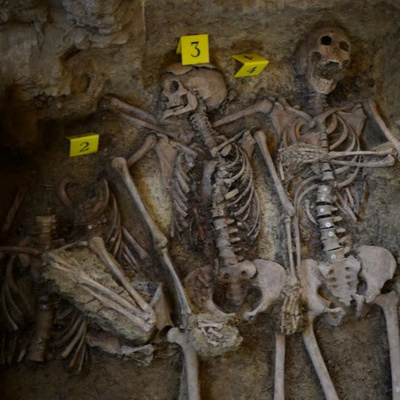



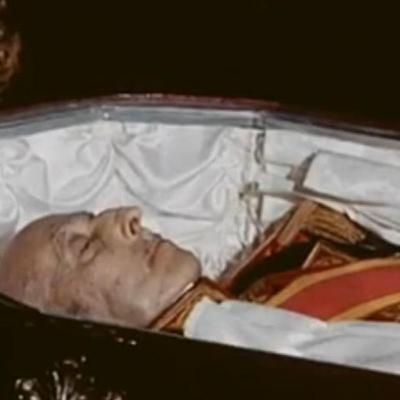
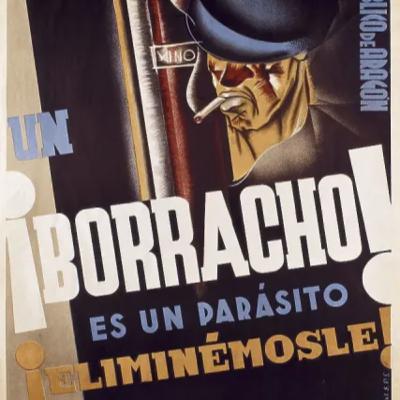
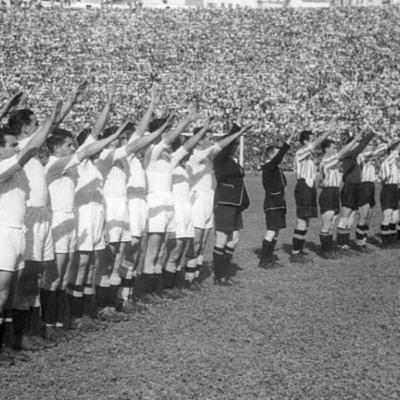
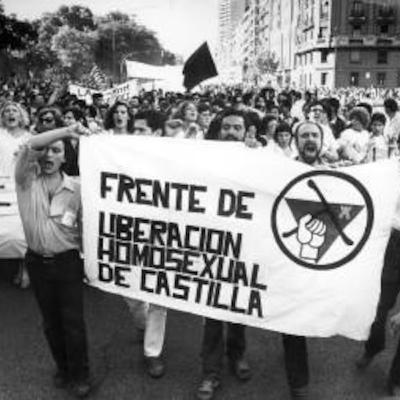
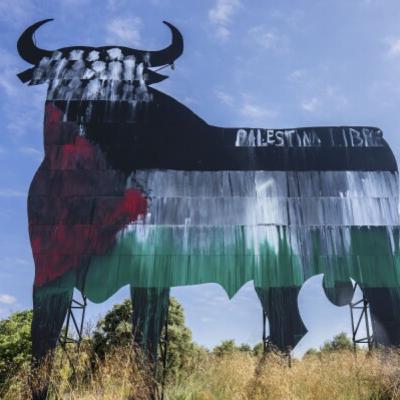


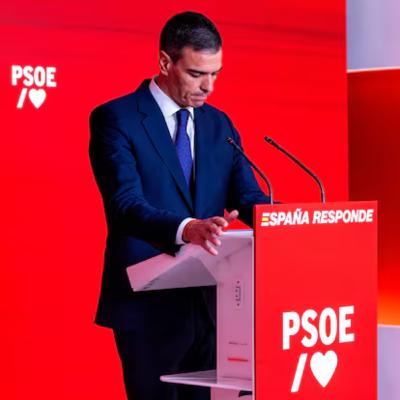
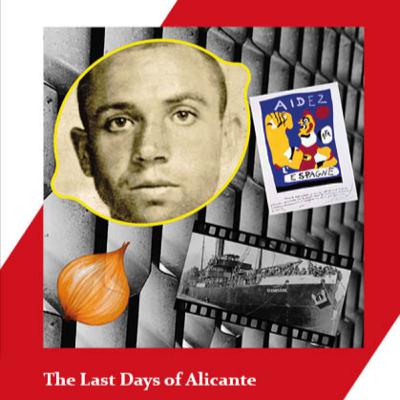










Hi I've been looking for a Spanish politics podcast in English for a long time. So happy I've finally found yours